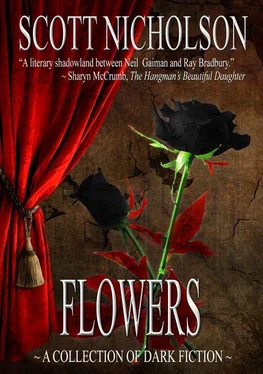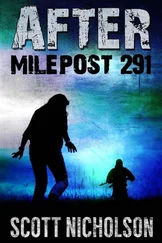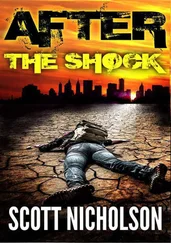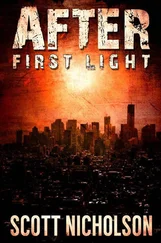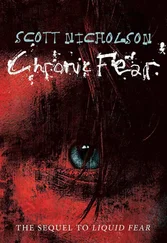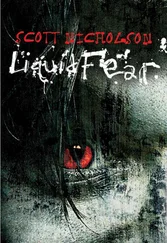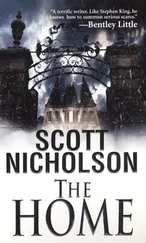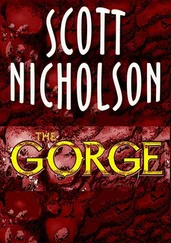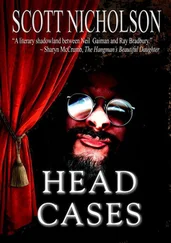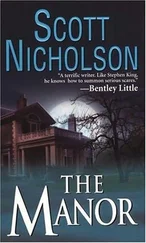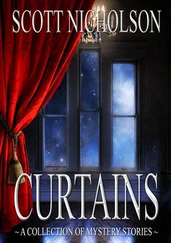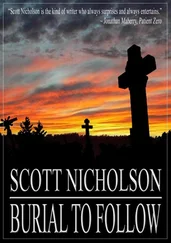Scott Nicholson - Ashes
Здесь есть возможность читать онлайн «Scott Nicholson - Ashes» весь текст электронной книги совершенно бесплатно (целиком полную версию без сокращений). В некоторых случаях можно слушать аудио, скачать через торрент в формате fb2 и присутствует краткое содержание. Жанр: Триллер, на английском языке. Описание произведения, (предисловие) а так же отзывы посетителей доступны на портале библиотеки ЛибКат.
- Название:Ashes
- Автор:
- Жанр:
- Год:неизвестен
- ISBN:нет данных
- Рейтинг книги:3 / 5. Голосов: 1
-
Избранное:Добавить в избранное
- Отзывы:
-
Ваша оценка:
- 60
- 1
- 2
- 3
- 4
- 5
Ashes: краткое содержание, описание и аннотация
Предлагаем к чтению аннотацию, описание, краткое содержание или предисловие (зависит от того, что написал сам автор книги «Ashes»). Если вы не нашли необходимую информацию о книге — напишите в комментариях, мы постараемся отыскать её.
Ashes — читать онлайн бесплатно полную книгу (весь текст) целиком
Ниже представлен текст книги, разбитый по страницам. Система сохранения места последней прочитанной страницы, позволяет с удобством читать онлайн бесплатно книгу «Ashes», без необходимости каждый раз заново искать на чём Вы остановились. Поставьте закладку, и сможете в любой момент перейти на страницу, на которой закончили чтение.
Интервал:
Закладка:
Worker Jews were driven at bayonet point, most with beards and thin faces, wearing long, filthy robes. They had already suffered plenty of hardship, but nothing like what they would see today, Wolfram thought. He saw Scherr lead a small squadron of men into a long, low building that could have been a hospital or an old people’s home. Automatic gunfire erupted like popcorn kernels over a fire. Minutes later, Scherr and the other reservists exited the smoky portal that led into the building. No Jews accompanied them.
Nearby, Wassen stood leaning against a stone wall. At his feet was a woman, a blossom of blood on the back of her dress. Wassen dropped his rifle and knelt, vomiting. Wolfram looked around to see if anyone noticed them. An old Jew, who might have been a rabbi, gave a grim nod. Wolfram turned away and stood over Wassen.
“ We have orders,” Wolfram said gently.
“ I can no longer shoot,” Wassen said, wiping his nose on his uniform and leaving a long, greasy smear.
“ Are you out of ammunition?”
“ I can no longer shoot.”
Wolfram looked at the rabbi and the other Jews huddled around him on the rough, pebbled street. “Join Drukker on guard duty at the station.”
“ Thank you, Herr Oberleutnant.”
“ Efficiency,” Wolfram said. “A man who can’t shoot is more useful somewhere else.”
More shots rang out. The men had been given extra ammunition before the train rolled into the station. They must have known this action was to be unusual. They must all have suspected what was coming.
Scherr jogged up, breathless, his cheeks flushed despite the heat. He appeared rejuvenated, years younger. Blood dotted his boots. “We have about three hundred workers to transfer,” he said. “And the others are ready.”
“ March the workers to the station,” Wolfram said. “Are Second and Third platoons in place?”
“ Yes, sir.”
“ Continue the action. Captain Hermmansbiel said this should take less than a day.”
It was a job, a mission. Hermmansbiel had delivered the order, probably doing the same thing Wolfram was doing, the same as Scherr. Passing a command down the ranks. No single man was responsible.
The worker Jews rose on command, flanked by guards, and moved down the street. How accepting they are, Wolfram thought. How dignified.
Then their sheepishness made him angry. He had known a German Jew in Hamburg, an engineer who built parts for milling machines. A fine craftsman who had shared some of his people’s strange beliefs. Wolfram, a Lutheran, wondered if the engineer had been relocated out of Germany with all the others. He might even be among this crowd, being shuttled once again. If he were still able to walk.
More women, children, and the ambulatory older men were gathered in the square. Wolfram guessed there were maybe a thousand. A dozen reservists from the Third platoon each selected a single person from the assemblage. They urged the Jews toward the forest, one of the policemen sticking a bayonet tip into the back of his charge.
Lieutenant Von Offhen, leader of the Third platoon, flagged down Wolfram. “This is going too slowly.”
“ How far into the woods are they taking them?”
“ A half kilometer.”
A fusillade of shots sounded in the distance. Wails arose from a few of the women, causing the infants to renew their cries. The Jews’ composure of the early morning was fading as the July heat settled in and realization unvelveted its claws.
“ You have a guard for each Jew,” Wolfram said. “But none are attempting to flee.”
“ It gives the men a chance to rest. The shooting is-mentally exhausting.”
“ They’ll be more exhausted if we have to continue this into the night, working by the headlights of trucks.”
“ There’s another problem. The forest trail is already becoming cluttered with bodies. Maneuvers are difficult.”
“ Try this. Use only two guards to escort each group of Jews. The others can reload and be ready when the group arrives. Start at the farthest end of the trail so that each succeeding trip is shorter.”
Von Offhen’s brow furrowed. “I’m not sure the men will like it. Especially those doing the shooting.”
Wolfram thought of Scherr’s pink, joyful face. “Let anyone who wants to be relieved come down and watch the square. I’ve no doubt there will be plenty who will take their places.”
Though they were of equal rank, Von Offhen saluted and went to implement the suggestions. Efficiency, Wolfram thought. It all comes down to a question of efficiency.
The day wore on, in an endless parade of Jews and a cavalcade of rifle shots. Wolfram went from the square to the train station, where Drukker and Wassen shared a canteen. When Wolfram got close, he smelled the alcohol.
“ Cognac,” Drukker said, offering the canteen. “A gift from the Polish Catholic priest.”
Wolfram declined the drink. “See if the Poles have enough for all the men on duty. A cheap price for having their dirty work done.”
Drukker hurried off, a bit wobbly.
Wolfram lit a cigarette. “What will you write to your family tonight, Private Wassen?”
“ I think I’ll write fiction tonight.”
Wolfram’s laugh turned into a smoke-induced hack. “I think we all will. And I pity us for the dreams we’ll suffer.”
Wassen appeared uncomfortable, hearing such things from an officer. Wolfram wondered if any of the men would report him for erratic behavior. Besides Scherr, none of them had a chance of promotion if Wolfram were declared unfit for duty. He saluted the poet and said, “It’s a question of efficiency.”
Wolfram took a circuitous route through the forest. He came upon the first bodies several hundred feet from where the firing squads were now at work. They all lay face down, most bearing a single bullet wound to the top of the neck. Some, no doubt the victims of reluctant or inattentive shooters, had the tops of their skulls blown off, and bits of blood, bone, and brain pocked the carpet of leaves.
It was evening, and he knew he should make an appearance for the benefit of morale. He followed the trail, bodies girding its length on both sides where the Jews had willingly and tacitly participated in their own deaths. In some ways, the Jews were even more efficient than their killers, as if they were in a hurry to help.
The nearest group of shooters was comprised of members of Wolfram’s platoon. Kleinschmidt recognized him and lifted a tired arm in greeting. He appeared drunk. The priest must have had a good supply of cognac.
“ Herr Oberleutnant,” the corporal shouted, nearly as jolly as Scherr had been earlier. “We are doing good work now.”
“ There are only eight in your squad,” Wolfram said.
“ Some of the men became sick after only a couple of rounds. Scherr relieved them.”
As Wolfram watched, another group of Jews was led along the trail. Von Offhen had bettered Wolfram’s suggestion and now used only one guard to march each group to the woods. “Down,” Kleinschmidt bellowed. “Filthy Jew pigs.”
The ten Jews, all but two of them women, fell onto their hands and knees, then prone onto their stomachs. Some of them held hands with the persons beside them. Wolfram noticed that when the echo of the shots died away, the forest was eerily quiet.
“ Aim,” Kleinschmidt ordered, and the squad placed the tips of their bayonets at the bases of the skulls of the Jews in front of them. “Fire.”
The two Jews on the end, one a boy of about four, the other a gray-haired woman wearing a cowl, had to wait for two policemen to reload. The boy wore a small Dutch cap similar to the one Wolfram had given his son Karl for Christmas. The boy whimpered while the old woman tried to calm him with what Wolfram believed must be some kind of prayer. Whether her words asked God for mercy or for a swift death, he couldn’t tell. Hebrew was a crude, inferior language and any god worth knowing wouldn’t abide such a tongue.
Читать дальшеИнтервал:
Закладка:
Похожие книги на «Ashes»
Представляем Вашему вниманию похожие книги на «Ashes» списком для выбора. Мы отобрали схожую по названию и смыслу литературу в надежде предоставить читателям больше вариантов отыскать новые, интересные, ещё непрочитанные произведения.
Обсуждение, отзывы о книге «Ashes» и просто собственные мнения читателей. Оставьте ваши комментарии, напишите, что Вы думаете о произведении, его смысле или главных героях. Укажите что конкретно понравилось, а что нет, и почему Вы так считаете.
